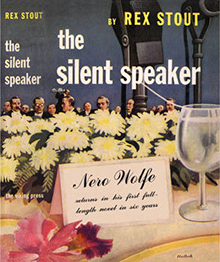
The Silent Speaker is a Nero Wolfe detective novel by Rex Stout, first published by the Viking Press in 1946. It was published just after World War II, and key plot elements reflect the lingering effects of the war: housing shortages and restrictions on consumer goods, including government regulation of prices, featuring the conflict between a federal price regulatory body and a national business association, paralleling the conflicts between the Office of Price Administration and the U.S. Chamber of Commerce and the National Association of Manufacturers.

Bad for Business is a mystery novel by American write Rex Stout, starring his detective Tecumseh Fox, first published in 1940. Private investigator Tecumseh Fox was the protagonist of three mysteries written by Stout between 1939 and 1941.

Fer-de-Lance is the first Nero Wolfe detective novel written by Rex Stout, published in 1934 by Farrar & Rinehart, Inc. The novel appeared in abridged form in The American Magazine under the title "Point of Death". The novel was adapted for the 1936 film Meet Nero Wolfe, and it was named after a venomous snake with the same name. In his seminal 1941 work, Murder for Pleasure, crime fiction historian Howard Haycraft included Fer-de-Lance in his definitive list of the most influential works of mystery fiction.

Where There's a Will is the eighth Nero Wolfe detective novel by Rex Stout. Prior to its publication in 1940 by Farrar & Rinehart, Inc., the novel was abridged in the May 1940 issue of The American Magazine, titled "Sisters in Trouble." The story's magazine appearance was "reviewed" by the FBI as part of its surveillance of Stout.

Death Times Three is a collection of Nero Wolfe novellas by Rex Stout, published posthumously by Bantam Books in 1985. It is the only collection of Stout's Nero Wolfe stories not to have appeared first in hardcover. The book contains three stories, one never before published:
"Method Three for Murder" is a Nero Wolfe mystery novella by Rex Stout, first serialized in three issues of The Saturday Evening Post. It first appeared in book form in the short-story collection Three at Wolfe's Door, published by the Viking Press in 1960.
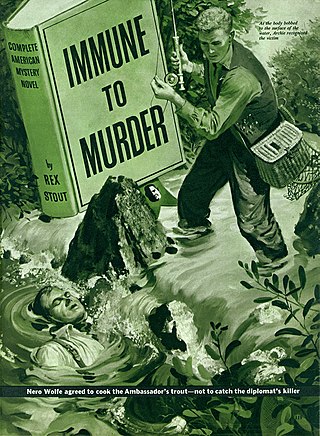
"Immune to Murder" is a Nero Wolfe mystery novella by Rex Stout, first published in the November 1955 issue of The American Magazine. It first appeared in book form in the short-story collection Three for the Chair, published by the Viking Press in 1957.
"Counterfeit for Murder" is a Nero Wolfe mystery novella by Rex Stout, first serialized as "The Counterfeiter's Knife" in three issues of The Saturday Evening Post. It first appeared in book form in the short-story collection Homicide Trinity, published by the Viking Press in 1962.
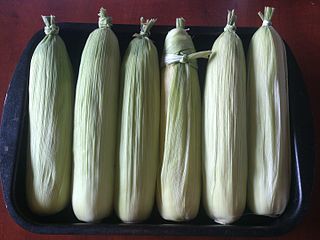
"Murder Is Corny" is a Nero Wolfe mystery novella by Rex Stout, first published in April 1964 in the short-story collection Trio for Blunt Instruments. It was the last Nero Wolfe novella to be written, and the last published in Stout's lifetime.
"Murder Is No Joke" is a Nero Wolfe mystery novella by Rex Stout, first published in the 1958 short-story collection And Four to Go.

"Frame-Up for Murder" is a Nero Wolfe mystery novella by Rex Stout, serialized in three issues of The Saturday Evening Post.

"Before I Die" is a Nero Wolfe mystery novella by Rex Stout, first published in the April 1947 issue of The American Magazine. It first appeared in book form in the short-story collection Trouble in Triplicate, published by the Viking Press in 1949.
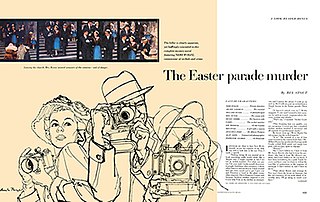
"Easter Parade" is a Nero Wolfe mystery novella by Rex Stout, first published as "The Easter Parade Murder" in the April 16, 1957, issue of Look magazine. It first appeared in book form in the short-story collection And Four to Go, published by the Viking Press in 1958.

"Not Quite Dead Enough" is a Nero Wolfe mystery novella by Rex Stout, first published in abridged form in the December 1942 issue of The American Magazine. It first appeared in book form as the first of two novellas in the short-story collection Not Quite Dead Enough, published by Farrar & Rinehart in 1944.

"Booby Trap" is a Nero Wolfe mystery novella by Rex Stout, first published in the August 1944 issue of The American Magazine. It first appeared in book form as the second novella in the short-story collection Not Quite Dead Enough, published by Farrar & Rinehart in 1944.
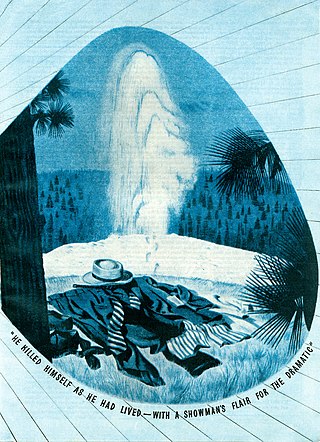
"Man Alive" is a Nero Wolfe mystery novella by Rex Stout, first published in the December 1947 issue of The American Magazine. It first appeared in book form in the short-story collection Three Doors to Death, published by the Viking Press in 1950.
"Blood Will Tell" is a Nero Wolfe mystery novella by Rex Stout, first published in the December 1963 issue of Ellery Queen's Mystery Magazine. It first appeared in book form in the short-story collection Trio for Blunt Instruments, published by the Viking Press in 1964.

"Home to Roost" is a Nero Wolfe mystery novella by Rex Stout, first published as "Nero Wolfe and the Communist Killer" in the January 1952 issue of The American Magazine. It first appeared in book form in the short-story collection Triple Jeopardy, published by the Viking Press in 1952. This novella and the 1949 novel The Second Confession are notable expressions of Stout's contempt for both Communism and McCarthyism.

This is a bibliography of fiction by and works about Rex Stout, an American writer noted for his detective fiction. He began his literary career in the 1910s, writing more than 40 stories that appeared primarily in pulp magazines between 1912 and 1918. He then wrote no fiction for more than a decade, until the late 1920s, when he had saved enough money through his business activities to write when and what he pleased. In 1929, he wrote his first published book, How Like a God, an unusual psychological story written in the second person. He wrote a pioneering political thriller, The President Vanishes (1934), before specializing in detective fiction. His 1934 novel Fer-de-Lance introduced his best-known characters, detective Nero Wolfe and his assistant Archie Goodwin, who were featured in 33 novels and 39 novellas and short stories between 1934 and 1975. In 1959, Stout received the Mystery Writers of America's Grand Master Award. The Nero Wolfe corpus was nominated as Best Mystery Series of the Century at Bouchercon XXXI, the world's largest mystery convention, and Rex Stout was nominated as Best Mystery Writer of the Century.
The Wolfe Pack is a literary society devoted to Rex Stout's character Nero Wolfe.
















